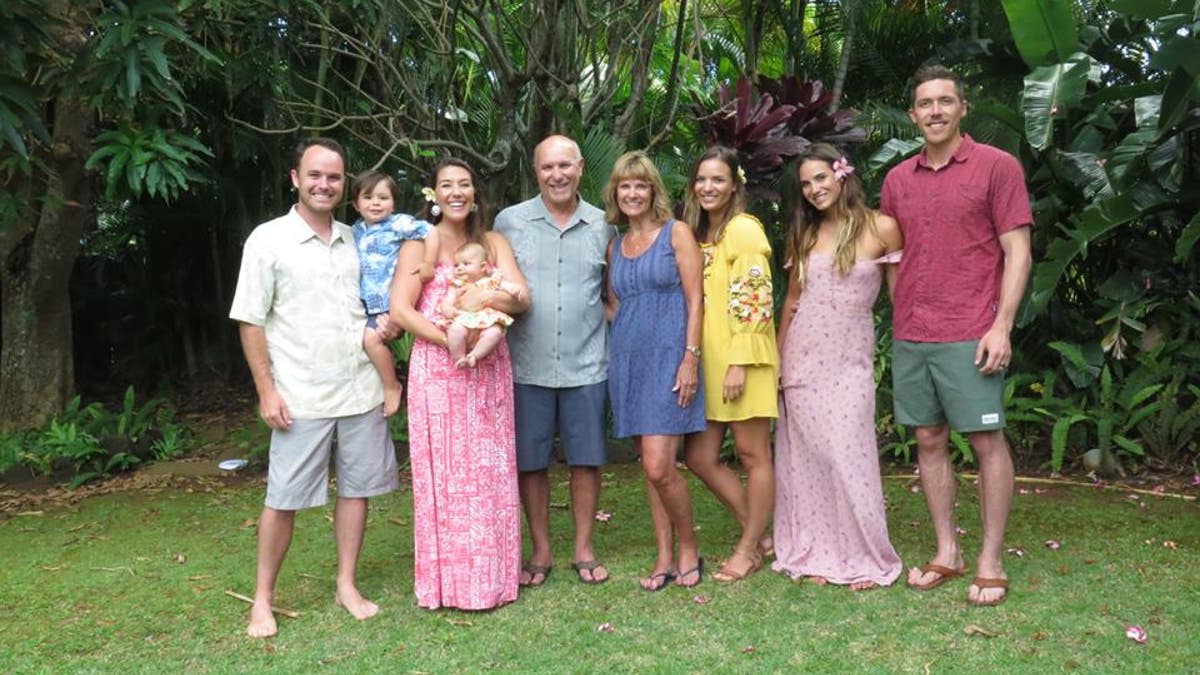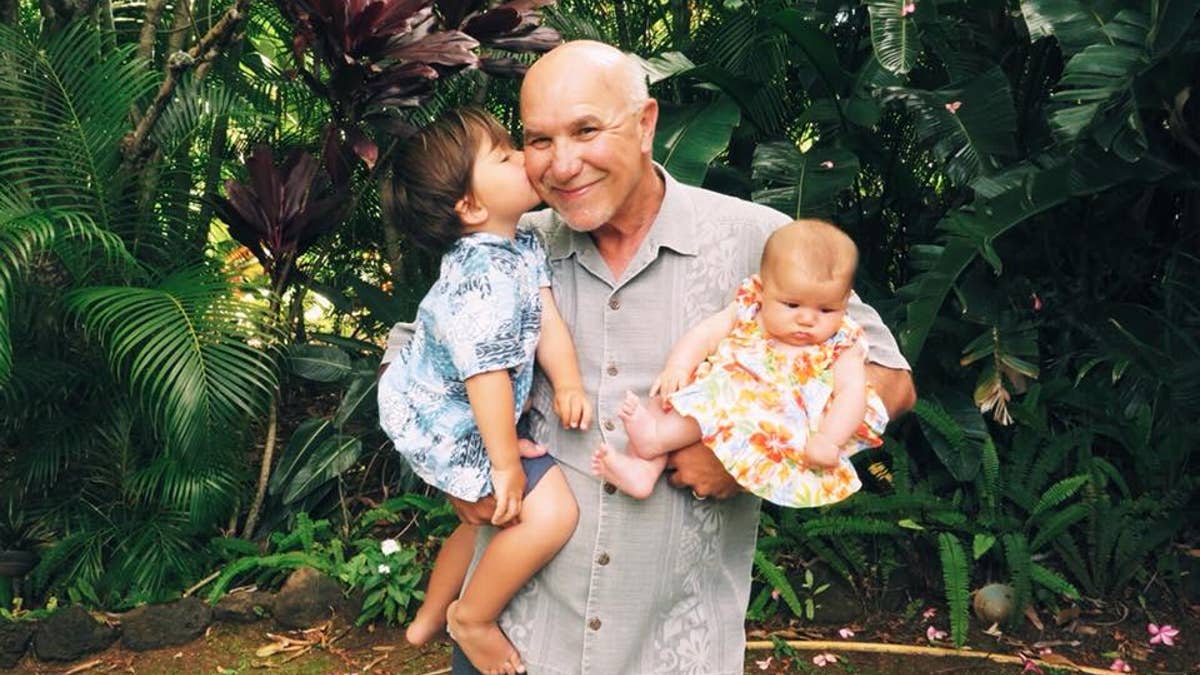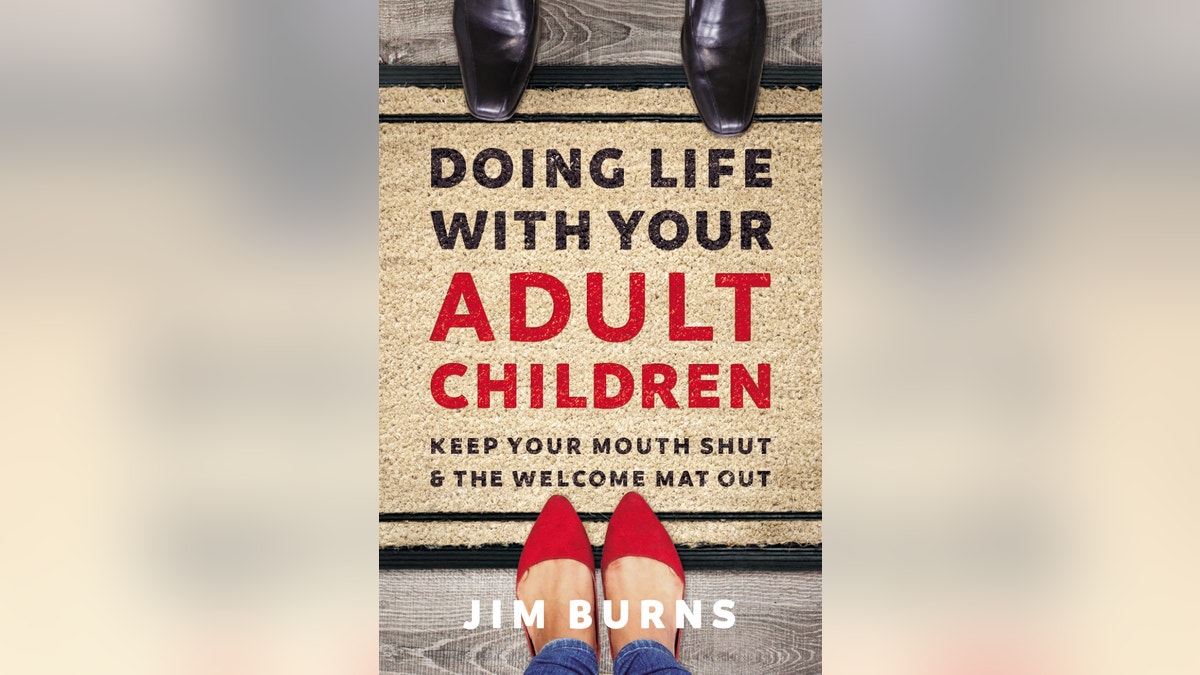
Jim Burns with his family. (Courtesy of the author)
Something wakes me up. I look at the clock and it is 2:30 a.m. I then discover what, or rather who, disturbed my sleep. It’s my wife, Cathy. She is just lying there next to me with her eyes wide open.
“What’s up?” I ask. “You okay?”
“Yes, I’m okay,” she says. “I was just thinking about Becca.”
MY DAUGHTER WAS HORRIFIED – AND SHE WAS GOING TO TEACH ME A BIG LESSON
“Is she okay?” I ask.
“I guess so,” Cathy replies. “I just don’t know.”
I give her hand a reassuring pat. “Is there anything I can do for you?”
“No,” she says, “just go back to sleep.”
Most parents I’ve talked to tell me they lost sleep worrying about their kids when they were younger, but it’s surprised me to discover how often many parents of adult children tell me the same thing.

(Courtesy of the author)
I often hear statements like these:
“My son’s choices are breaking my heart.”
“I feel like I don’t know my role as her parent anymore.”
“He needs to get a job!”
“Every time I give my daughter some heartfelt advice, she bites my head off.”
“I’m still in shock that he doesn’t go to church anymore.”
“Where did I go wrong?”
Can you relate? If so, know that you are far from alone.

(Courtesy of Zondervan)
As our own kids moved towards adulthood, Cathy and I quickly realized that what we had dedicated and focused our lives on for the last two decades was changing. Our day-to-day parenting was shifting quickly. There was no parenting manual for this new phase of our lives. We determined that we had to redefine our role and so did our kids.
We had seen too many of our friends’ kids have a failure to launch. Many parents enable their older teens and young adult children to remain stuck because the parent is still too overly involved in their day-to-day lives.
One day in our frustration, my wife pulled out a blank piece of paper and wrote these words: What will it take for our kids to become responsible adults? We knew that had to become our goal in parenting. Here are two principles we came up with:
Principle One: Unsolicited advice is usually taken as criticism
We have the scars on our tongues to prove that we put this principle into practice. I felt a bit like the dad who once said to his wife, “But why does she need to go to Europe to find herself when I have all the answers for her life right here?”
We had to trust that experience is a better teacher than advice. It was time to give our kids the respect to make their own decisions because no adult really wants to be told what to do.
Our role had to move to mentor and coach when we were asked to comment.
Principle Two: They will never know how far the town is if you carry them on your back
We had to ask the question, “Are we caring for our kids or enabling dependency?” Parents must recognize that they are enabling dependency when they are scheduling their 22-year-old’s dentist appointment or calling to wake them up at college so they won’t miss a test.
A friend of mine is the president of a university. He once received a call from a disgruntled parent who was complaining about a grade her son received on a paper for his business class. He checked with the professor who said, “I was being lenient with a D. It was really an F paper.”
When the president called the woman back she was very upset and said, “I have an MBA from Stanford and I wrote that paper for my son.”
Hmm, I wonder if she saw the irony in her statement.
Part of not raising an entitled child is to let them learn to fail on their own. We learned from our failures and now it’s their turn. This means that parents must do the hard work of negotiating boundaries that can set the kids up for success, even though there may be some bumps and bruises along the way.
Here are some phrases that I think are most helpful to remember when it comes to setting boundaries:
“You earned it.” In other words, “You earned your negative outcome and consequences.” This is the principle that you reap what you sow. The idea that our behaviors have consequences is an essential life lesson for adolescents and young adults.
“You can choose the pain of self-discipline or the pain of regret.” Everyone knows there is pain in life. We either choose the pain of self-discipline or the pain of living with regrets. Enabling our adult children takes away the opportunity for our kids to grow in self-discipline.
CLICK HERE TO GET THE FOX NEWS APP
“You can’t want it more than they want it.” In other words, if your kids don’t want to make good choices, no amount of wanting them on your part will change things. Even when our adult children aren’t making good decisions or have made a mess of their lives, we must let them clean up their own messes. There are consequences for our choices, both good and bad. Until your kids decide they want good consequences, you can’t want them into good choices. When the pain of remaining the same is greater than the pain of changing, they will change.
We’ve found other principles along the way, but the bottom line for parents of older kids still is that we need to be raising responsible adults. As I’ve often said to my wife, “We need to be nice to our adult children. They will most likely be the ones who someday take away our car keys and usher us into the convalescent care facility.”




















